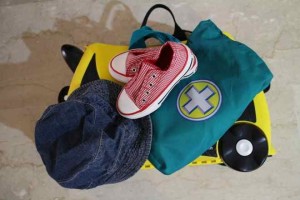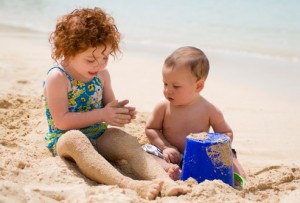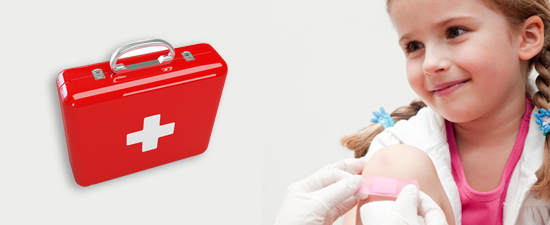Ensuring Your Children’s Medical Health & Safety when Travelling
 When travelling with your children, the most important aspect that you need to think about is their health. This is important to ensure that not only will you have an enjoyable trip, but also to guarantee that your children don’t come back home, less healthy than when you started out.
When travelling with your children, the most important aspect that you need to think about is their health. This is important to ensure that not only will you have an enjoyable trip, but also to guarantee that your children don’t come back home, less healthy than when you started out.
What do I need to know?
In order to have a good holiday, free from medical troubles for your children, below are some aspects that you need to take into consideration.
Children should be up to date on routine vaccinations including those for mumps, measles, rubella, polio, hepatitis B, tetanus, diphtheria, and varicella (chickenpox/shingles). Some vaccinations and medications are not recommended for children. This means that the risk or severity of certain diseases is increased in children.
Diarrhea is more common in children because so much ends up in their mouths. Children can quickly become dehydrated. Make sure that your child drinks plenty of fluids. Consider adding an oral rehydration solution to your medical kit.
Children are attracted to animals and are more likely to get bitten. Bite wounds may become infected or transmit rabies. Keep children away from animals.
Newborns and infants are at special risk because they are easily dehydrated and many vaccines and medications are contraindicated in this age group. Breastfeeding will help reduce the risk of diarrhea. There are limited options for malaria prevention in infants. Around the world, malaria remains one of the major causes of death in children.
What about travelers’ diarrhoea in children?
Children with travelers’ diarrhoea are susceptible to dehydration. Suggestions to reduce the risk of travellers’ diarrhoea include:
- Avoid risky foods such as seafood, undercooked meats, peeled and raw fruits and vegetables, and unpasteurised dairy products.
- If you are unsure of the water supply, only drink bottled water, carbonated soft drinks or bottled fruit juices.
- Use bottled water when brushing teeth.
- Wash your child’s hands frequently.
- Avoid eating foods from street vendors.
What about other safety issues?
Prevention is of course better than cure. In addition to ensuring that your children are safe from diarrhea, animal bites and infectious diseases when travelling, here are some general safety tips you can adopt.
- See your doctor about immunisations beforehand, if appropriate.
- Pack sunscreen, hats and insect repellent.
- Be particularly careful about the potential dangers of unfamiliar places, such as unfenced swimming pools or balconies.
- Take all sterilising equipment with you if your child is bottle-fed.
- Take a medical kit
What else can you do.. just in case?
Make sure that you know where to call if your baby get sick. If it’s not an emergency, a good trick is to bring your baby’s pediatrician’s number or email. It feels easier asking questions and not having to worry about language misunderstandings.
Additionally, you can also create your small natural travel pharmacy containing the following :
- Viburcol – oral solution from Heel (Flu, Colds, Fevers, Minor Infections, Colic)
- Ferrum phosphoricum pearls (Flu, infections)
- Probiotic drops from Biogaia (boost digestive and immune systems)
- Traumeel cream from Heel (pain relief and skin problems, bites, rash etc.)
- Resque cream from Bach flower remedies (skin problems, wounds, bites, rash etc.)
- Herbal spray from Spenglersan (pain relief, immune boosting)
- Citronella oil spray (non-toxic mosqiuto remedie from Asia).
- Mini first aid kit
- Relief of fever suspension drops
- Oral rehydration salts
- Baby paracetamol
- Thermometer
- Anti-itching lotion
- Bandaids









